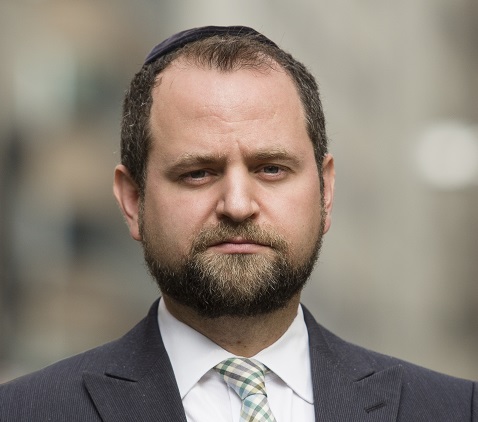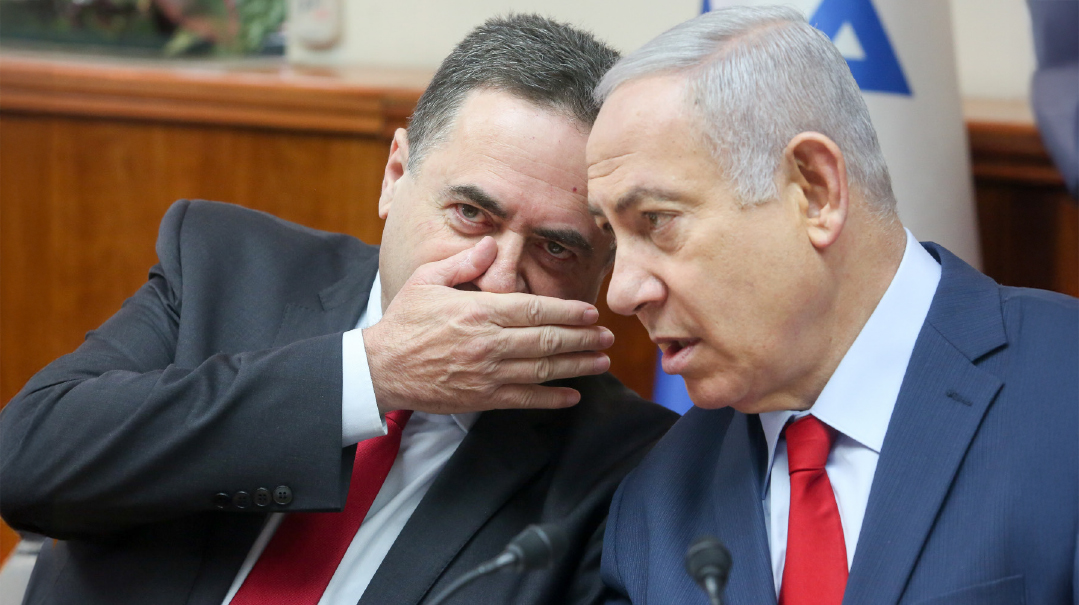Abandonment Issues

In his conversations with chareidi MKs, Netanyahu assessed that a Knesset majority for a draft law does exist

Netanyahu: “Focus on the talks with Yisrael Katz — when you have an agreement, I’ll deal with the Likud” (Photo: Flash90)
1
The link is hard to resist. The ICC arrest warrants against Prime Minister Binyamin Netanyahu and dismissed defense minister Yoav Gallant were issued the same week that the Knesset’s Defense and Foreign Affairs Committee discussed arrest warrants for 1,126 yeshivah students who failed to answer their first and second draft notices.
The move to arrest yeshivah students can be credited to dismissed defense minister Yoav Gallant. “I couldn’t stop the process once it started, but from now on we’ll do everything by consensus,” incoming defense minister Yisrael Katz told Degel HaTorah MKs this week.
Despite the pessimistic view of the Slabodka rosh yeshivah, Rav Moshe Hillel Hirsch, who set out for the US this week on a fundraising trip, Netanyahu sounded optimistic. In his conversations with chareidi MKs, Netanyahu assessed that a Knesset majority for a draft law does exist.
“Focus on the talks with Yisrael Katz — when you have an agreement, I’ll deal with the Likud,” said Netanyahu, promising to secure the vote of every Likud MK, including Yuli Edelstein, chair of the Defense and Foreign Affairs Committee, and with the sole exception of Yoav Gallant, who’s no longer counted as a member of the coalition.
Gallant, who’s been coming to the Knesset alone, finds himself having burned all his bridges. With no government role, facing an international arrest warrant, and with the Likud making noises about declaring him a defector, which would restrict his powers as an MK.
In a meeting with hostages’ families, Netanyahu explained that the dozens of trucks of humanitarian aid to Gaza were necessary to forestall the possibility of legal proceedings in international courts. The ICC ruling caught Israel off guard, after President-elect Trump’s threats and Prosecutor Karim Khan’s misconduct allegations seemed likely to delay the ruling, at the very least. This was another intelligence failure, this time in the diplomatic arena.
2
Israel’s focus on the Lebanon cease-fire negotiations over the past two weeks were aimed at preventing a unilateral move by the outgoing Biden administration in the UN Security Council.
“All eyes were on Washington, so the Hague was overlooked,” a cabinet minister told me this week.
No less of an unpleasant surprise than the warrants themselves were the reactions to them in much of the West. Israel has now all but written off the French, even demanding that France be excluded from the arrangement taking shape in Lebanon in talks with American mediator Amos Hochstein, despite the country’s long-running interests in the Land of the Cedars. But the Netherlands, Canada, and many other countries announced that they would respect the warrants, leaving Israel with its back to the wall.
The arrest warrants for Netanyahu and Gallant are only the beginning. In the future, every active reservist will be at risk of arrest upon landing in most Western countries.
In a country swinging back and forth between depression and hope in a sort of Bibi-manic depression, Israel is looking forward to Trump’s return to the White House next January. After the current administration contented itself with mealy-mouthed condemnations, Netanyahu hopes Trump will take action against countries that comply with the ruling, turning the hunters into the hunted.
The driving force behind the proceedings against Israel is the Palestinian Authority, which secured observer status at the ICC in 2012. Finance Minister Bezalel Smotrich proposed withholding funds from the Palestinian Authority to push it into economic collapse — which proved to be empty talk, just like the bluster about firing the attorney general. The same obstacle to the PA’s collapse stands in the way of the attorney general’s dismissal, in light of the unanswered question: What’s the alternative?
Netanyahu opposes Smotrich’s proposals, explaining that bankrupting the PA will force Israel to worry not only about the refugees in Gaza, already a tall order, but also about Arab residents of Judea and Samaria.
On the issue of dismissing the attorney general, Netanyahu is personally blocking any move to oust her, out of fear that it could lead the High Court to declare him unfit to hold office — just as he’s about to begin testifying in his criminal cases at the Jerusalem District Court next month.
Netanyahu places great importance on his upcoming December testimony, fully aware that his words will be scrutinized not only in court but also by the Israeli public. However, Netanyahu’s legendary on-camera skills haven’t served him well in court, facing judges who restrict his answers and don’t allow him to wander off-topic as he might in an interview.
In his appearance before the state commission investigating the Meron disaster, he was so unprepared that it bordered on embarrassing. In contrast, former interior minister Aryeh Deri, who testified before him, came fully prepared, drawing on the hard lessons of his own legal battles in the 1990s.
Anyone watching Netanyahu’s public testimony could see that Israel’s most eloquent representative was struggling to adapt to a situation where he wasn’t the one calling the shots and was required to provide succinct answers within a strict format. His legal team will need to prepare him mentally, as well as legally, for what lies ahead.
3
A sense of abandonment, even ingratitude, gripped the family of Eli Feldstein during his ten harrowing days under arrest by the Shin Bet — without access to a lawyer and under conditions typically reserved for terrorists.
Netanyahu immediately sought to distance himself from the scandal, issuing a hurried statement on the Friday of Feldstein’s arrest that the official suspected of leaking information to Germany’s Bild didn’t hold an official role in the Prime Minister’s Office. Feldstein was hardly the first associate with legal troubles that Netanyahu threw under the bus.
But what happened next was unexpected: Journalists and public figures on the right rallied to Feldstein’s defense, turning his plight into a rallying cry against selective enforcement after an entire year of wartime leaks that went unpunished.
In conversations with Feldstein’s family, I was told that Eli had pleaded with them to remain silent and avoid turning his ordeal into a public pressure campaign. After days without contact, the family finally saw him in court — thin, frightened, looking like a terrorist after a few weeks in the Shin Bet’s cellars.
“We were disappointed with Netanyahu’s response,” a chareidi relative of Feldstein told me. “He was afraid it would stick to him. The statement his office issued on the Shabbos of Eli’s arrest, distancing itself from him, was sheer ingratitude. But the support from the right, and the protests outside the courthouse, encouraged us all.”
But with both the head of the Shin Bet and the state prosecutor involving themselves in the investigation, and with Feldstein’s indictment including the absurd charge of “intent to harm state security,” it’s obvious that the real goal is a plea bargain to implicate the prime minister.
Nearly two weeks after his initial statement, Netanyahu admitted to his close ties with his disgraced aide last Motzaei Shabbos.
“I was kept in the dark,” Netanyahu charged in a video he released that evening.
We’ll see how Netanyahu’s showdown with the judicial system plays out on the witness stand in the Jerusalem District Course. Netanyahu — and he’s not the only one — sees the Feldstein scandal as part of the same battle.
(Originally featured in Mishpacha, Issue 1038)
Oops! We could not locate your form.







